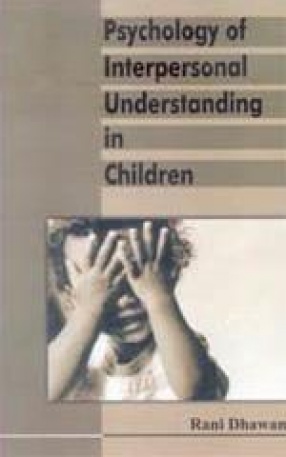This book is an attempt to understand the developmental changes in person perception among Indian children. The ability to perceive and understand individuals correctly is an essential condition for effective interaction in a social milieu. In Indian society people are interrelated and interact frequently. In the course of these interactions children keenly observe the discussions of elders and with developmental changes viz., learning the language, formation of concepts and the process of giving meaning coupled with inferences drawn on the basis of various psycho-social factors they perceive people. The impressions that a child forms do not provide a comprehensive account of a person. The descriptions constitute only a small fraction of what can be said about a relevant aspects of behaviour is another important principle which characterizes development of person concept. Various sorts of distortions and omissions characterize the long-term recall of even relatively meaningful material. Another interesting fact about impression formation is that it is not independent of the impressions formed by other persons. In our society socio-economic conditions not only affect the life style of people but also play an important role in perception of other persons. In fact socio-economic status creates a perceptual frame in which children perceive the people around them. The present volume is an humble attempt to understand how the ability to perceive and evaluate people and make inferences about their behaviour develops in the child.
Psychology of Interpersonal Understanding in Children
In stock
Free & Quick Delivery Worldwide
reviews
Bibliographic information
Title
Psychology of Interpersonal Understanding in Children
Author
Edition
1st ed.
Publisher
ISBN
8173916144
Length
xvi+148p., Figures; Tables; Bibliography; Index; 23cm.
Subjects





There are no reviews yet.